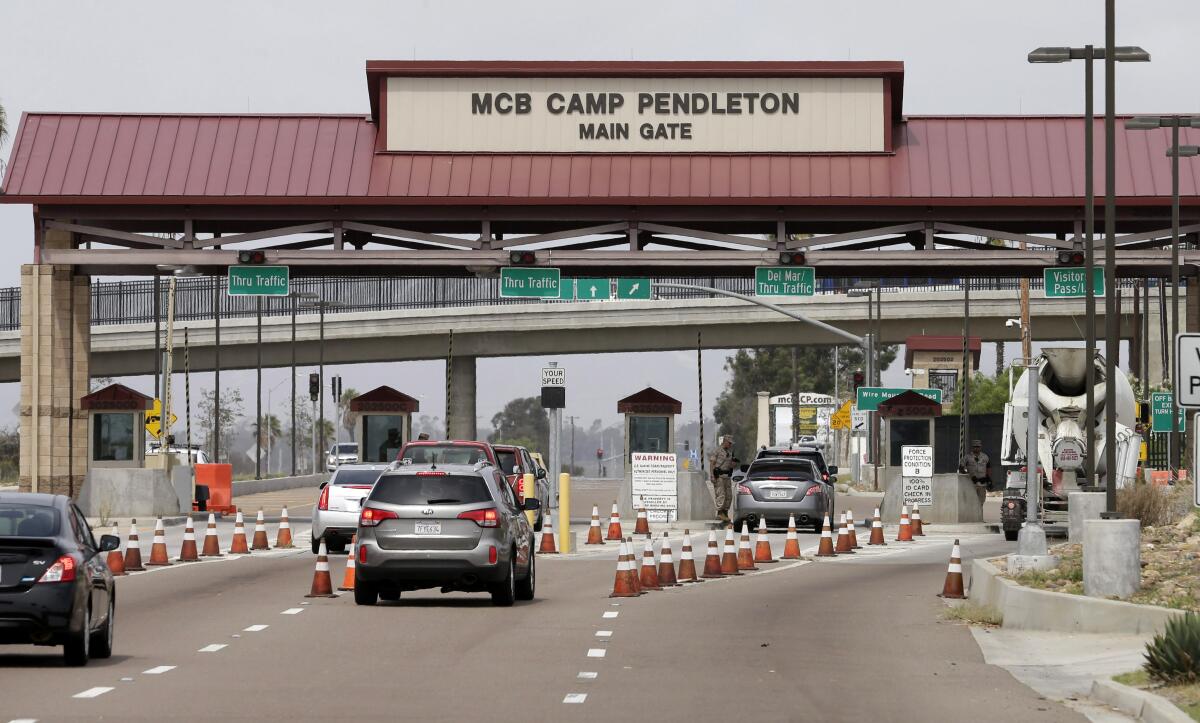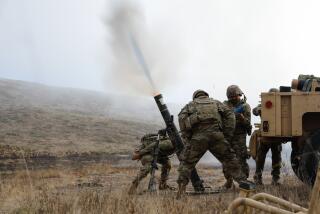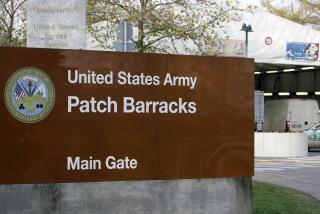Camp Pendleton and other military bases increase security amid Iran conflict

- Share via
Amid escalating tensions between the United States and Iran, the U.S. Northern Command — the agency that oversees the Department of Defense’s homeland defenses — has directed Camp Pendleton and other California military bases to increase security conditions.
After a U.S. drone strike targeted and killed Iran’s top military leader, Gen. Qassem Suleimani, Camp Pendleton posted a notice to its social media channels Saturday that the Marine Corps base in San Diego County, one of the largest in the country, will begin a 100% ID check policy.
The base warned travelers to expect delays at entry points as all vehicle occupants will be required to present an ID upon entering Camp Pendleton, said Capt. David Mancilla, a base spokesman.
“While we will not discuss specifics, U.S. Northern Command is implementing additional force protection condition measures to increase security and awareness for all installations in the U.S. NORTHCOM Area of Responsibility,” U.S. Northern Command spokesman Lt. Cmdr. Mike Hatfield said. There is no time limit on the increased security, authorities said.
U.S. Northern Command increased its security status — known as force protection condition, or FPCON — to Bravo, indicating a heightened threat of terrorist activity, for several bases. Mancilla said Camp Pendleton has been at FPCON Bravo for several years but is currently increasing its security checkpoints.
On Wednesday, President Trump addressed the nation after Tehran’s missile attack Tuesday night on U.S. forces in Iraq. Trump said no Americans or Iraqis were killed in the attack, and although he said he would impose additional economic sanctions on Iran, he did not call for any new military action.
Last week, local law enforcement sources told The Times that several agencies had increased patrols at transit hubs and key potential targets. The California Office of Emergency Services said that although there was no immediate threat to the state, the agency was working with local, state and federal officials to monitor the safety of Californians, including cybersecurity.
Officials with Los Angeles International Airport, San Francisco International Airport and local police departments said they would continue to monitor events.
More to Read
Sign up for Essential California
The most important California stories and recommendations in your inbox every morning.
You may occasionally receive promotional content from the Los Angeles Times.











